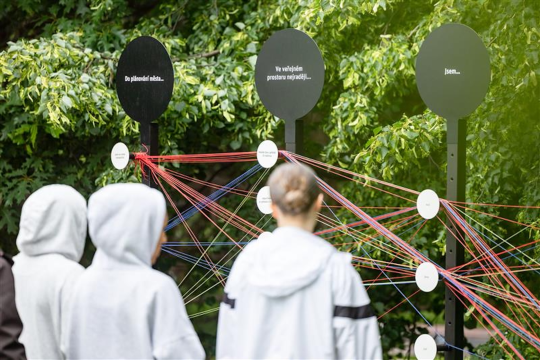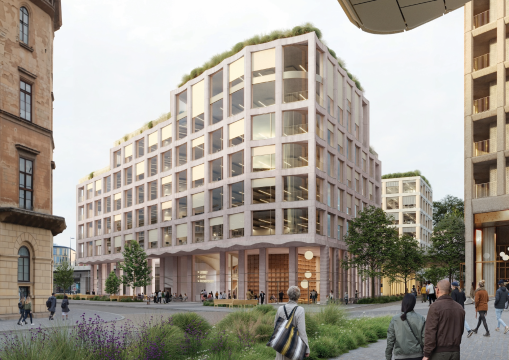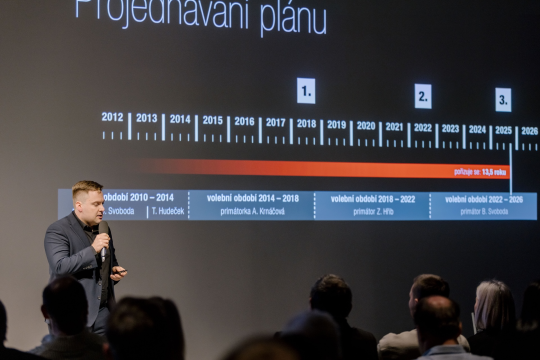Soutok Periurban Park project receives prestigious international award.
The Prague Institute of Planning and Development (IPR Prague) is the city’s main conceptual institution for architecture and urbanism. As such, IPR Prague consistently strives to involve the public in planning projects, as this engagement brings authentic local knowledge and an awareness of regional challenges. This participatory approach gave rise to the Soutok Periurban Park project, which was awarded the prestigious international West Midlands National Parks (WMNP) Award on October 3, 2024, in Birmingham, UK. Teams from all over the world participated in the competition, with only seven making it to the final round.

The river floodplain at the confluence of the Berounka and Vltava Rivers on Prague’s southern border spans over 1,300 hectares, and the area is divided between five city districts and the town of Černošice. Numerous conflicting interests converge here, often leading to uncoordinated interventions that damage the landscape. To address this, IPR Prague proposed the Soutok Periurban Park.
“The Soutok Periurban Park project is entirely unique in both the size of the area and its approach to involving all stakeholders, including residents, institutions, city districts, municipalities, and especially nature itself. Balancing so many layers and interests was a major challenge and a lot of hard work, and thanks to this significant award won by the project and its authors, we can say it was worth it. It makes sense to innovate in urban projects,” says Petr Hlaváček, Prague’s Deputy Mayor for Urban Development.
“The future periurban park will contribute to biodiversity, improve water retention through riverbank revitalization, and provide flood protection for neighboring communities in an environmentally friendly way. It's fantastic that our project has garnered attention abroad,” says Deputy Mayor for the Environment and Climate Plan, Jana Komrsková.
Without contact with nature, we get sick
The IPR Prague proposal comprises two projects: Interpretation of Landscape Aspects Through Art, and The Periurban Park as a Tool for Reducing the Impacts of Climate Change. The first project responds to the global phenomenon of “nature-deficit disorder,” which shows the link between poor health and a loss of contact with nature, especially for children, exploring how art can create deeper experiences of nature.
For the second project, IPR Prague launched an international landscape-urbanism competition, which was won in spring 2023 by a team comprising the architectural studios EMF (Catalonia), Norma (Czech Republic), and Pareto (France). IPR Prague presented their collective vision to the relevant institutions and the public, incorporating feedback into further project development.
Soutok wins
The carefully elaborated design made it to the WMNP Awards finals and emerged as the winner among the seven best landscape projects worldwide. “The judges appreciated our overall approach to the entire area, highlighting our commitment to innovative management and funding models and our program of community events aimed at engaging and winning over local residents,” says IPR Director Ondřej Boháč.
The results were announced on Thursday, October 3, 2024, in Birmingham.
WMNP Awards
The WMNP Awards are a competition organized by the West Midland National Park Lab, an international think tank affiliated with the University of Birmingham. Its mission is to research, develop, and assist in implementing both local and international landscape transformation projects, selected according to a strict ethical code. The lab’s flagship project is an entirely new type of national park in the West Midlands region of the UK.
What is a Periurban Park
A periurban park is an area under coordinated management by local stakeholders who have agreed on sustainable development of the area as a whole. Specifically, Soutok Park will function as protection against droughts and floods and serve as a “transformation laboratory” of open landscapes, including integrated floodplain revitalization, adjustments to suburban agriculture, increased solar absorption, and more. The goal is to protect and develop the natural values of the landscape, educate the public, and find solutions to help keep the city livable.
For detailed information about the project, click here.
Mohlo by Vás také zajímat

Pražany baví participační hra. V roce 2025 se do projektu Tvoje město, Tvůj prostor zapojily skoro tři stovky návštěvníků

Novou Florenc navrhne 15 evropských ateliérů. Praha zná vítězné návrhy mezinárodních architektonických soutěží

